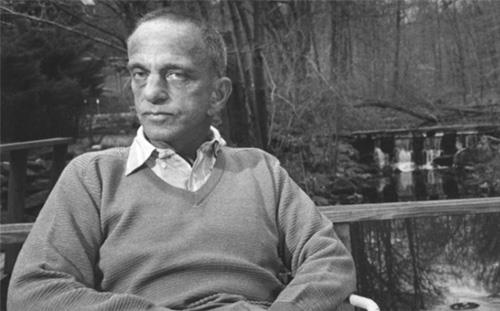
Things people don't like about their lives are often explained by the theory that too much is controlled by a small, powerful elite that's only concerned with themselves and cares nothing for the rest of us.
Resentment against perceived agents of that syndrome – the "Beltway Elite," the "Mainstream Media" – helped fuel, among other things, Donald Trump's 2016 ascent to the presidency.
Bully. Coward. Victim: The Story of Roy Cohn, a documentary that aired Friday on HBO, conducts an extensive examination of just such a powerful group.
Except here, its leader was a long-time good pal of Donald Trump.
Roy Cohn isn't about Trump. It's about Roy Cohn. But filmmaker Ivy Meeropol can't resist noting that however modest or significant Cohn's role in the rise of Trump, they share a kindred philosophy: Win by whatever means necessary, with whatever tools at hand. Never show grace or mercy to a perceived opponent because that is a sign of weakness. Above all, never admit you were or could be wrong about anything.
Cohn, who died in 1986, made his reputation in the early 1950s on two fronts. He was the chief aide to U.S. Sen. Joe McCarthy during McCarthy's anti-communist crusade, and he was the driving force behind the legal push to have Julius and Ethel Rosenberg executed for allegedly passing atomic bomb secrets to the Soviet Union.
Roy Cohn filmmaker Ivy Meeropol is the granddaughter of the Rosenbergs, so anyone who is betting this film won't be a mash note to Cohn's memory is on safe ground.
Meeropol is an established documentary filmmaker, however, so Roy Cohn never comes off as simply a rant. While little of the content flatters him, he gets his say through several dozen vintage clips in which he talks about his life, his work, and his philosophy to interviewers like Tom Snyder and Mike Wallace.
Meeropol also interviews some of Cohn's friends as well as his adversaries. Gossip columnist Cindy Adams, for instance, matter-of-factly explains that she used her newspaper column to trash people that Cohn wanted trashed. That's what you do for a loyal friend, she says, and Cohn was a loyal friend.
Cohn's most remarkable achievement, to Meeropol, wasn't his boy-wonder splash with the Rosenbergs and McCarthy. It was that once McCarthy's crusade crumbled, taking McCarthy with it, Cohn shrugged and ascended to even greater power.
He did this by establishing a reputation as a lawyer who would do anything to win. That sounded good to clients who ranged from the Archdiocese of New York to organized crime figures like Carmine Galante.
In return, among other things, Cohn got some of their cachet, influence, and power. He moved in a crowd that included New York Mayors Ed Koch and Abe Beame as well as rich and famous folks like Trump and Andy Warhol.
Among other things, no one wanted to be on Cohn's bad side, and while he was politically conservative, party affiliation and ideology were less important than understanding the value of being in the elite circle.
Roy Cohn spends less time on Cohn's personal life, built on deception, which was another way of winning.
He was notorious for not paying for anything, whether it was restaurant bills, the luxury cars he drove, or renovations to his high-end Manhattan apartment. The implication is that he didn't pay people because he didn't have to. No one wanted to get on Roy Cohn's bad side.
The centerpiece of his deception was never admitting he was gay. On the contrary, he gave interviews in which he denounced gay rights efforts, saying they threatened to undermine the sanctity of the American family.
So when he contracted AIDS, he denied it, saying he had a rare form of liver cancer. When he died, the autopsy said otherwise.
The title of this documentary comes from the Roy Cohn panel on the famous 1980s AIDS Quilt, in which thousands of panels commemorated those who had died from AIDS.
The irony is hard to miss: He died before his 60th birthday because he was the victim of a cruel disease that most of the power elite tried to ignore.
Most of the people interviewed by Meeropol in Roy Cohn say he used his brilliance for callous and selfish ends, to enrich and glorify himself at the expense of pretty much anyone who wasn't useful to him.
There are probably people out there who missed and still miss him. In the broader picture, Meeropol makes a good case that he left the world a little meaner and colder than he found it.
Editor's Note: Bully. Coward. Victim: The Story of Roy Cohn is currently available through repeats on HBO, streaming, and OnDemand.